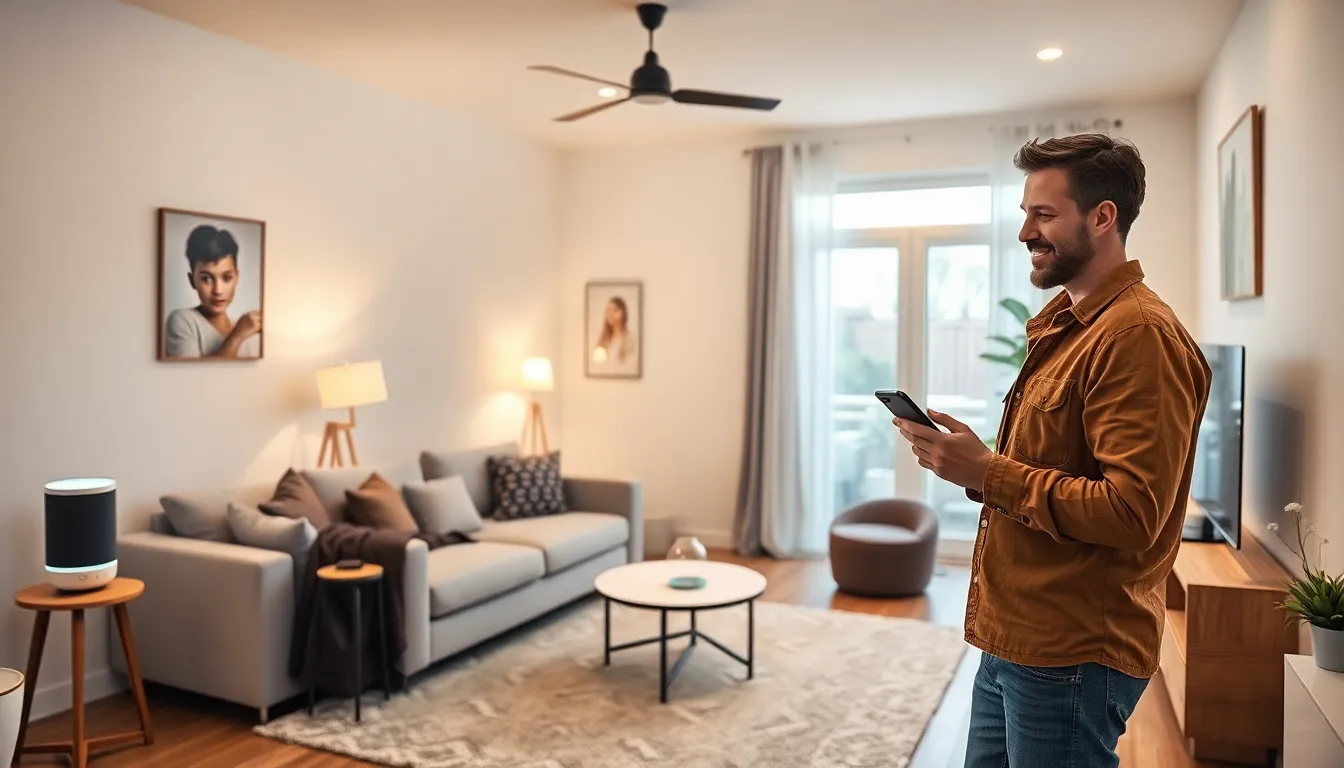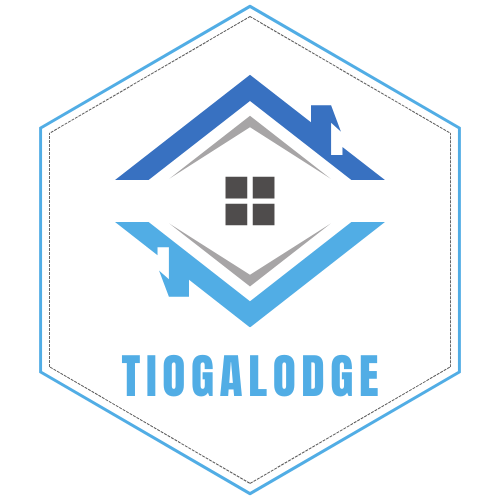Table of Contents
ToggleIn a world where technology is evolving at lightning speed, smart home upgrades are transforming how people interact with their living spaces. These innovations not only enhance convenience but also improve energy efficiency and security, making homes more comfortable and safer than ever before.
Imagine controlling lights, thermostats, and security systems with just a tap on your smartphone or a simple voice command. Smart home technology has made this a reality, appealing to homeowners looking to simplify their lives. As more devices become interconnected, the possibilities for customization and automation are endless, turning ordinary homes into intelligent living environments.
Overview of Smart Home Upgrades
Smart home upgrades include a range of devices and systems designed to enhance home automation, energy management, and security. These upgrades integrate technology seamlessly into everyday tasks, streamlining user experience and bolstering efficiency.
Categories of Smart Home Upgrades
- Smart Lighting
Smart lighting systems allow for remote control of illumination. Users can adjust brightness, color, and scheduling through smartphones or voice assistants.
- Smart Thermostats
Smart thermostats optimize heating and cooling based on user preferences and patterns. They can lead to energy savings of up to 10-12% on heating and 15% on cooling costs.
- Smart Security Systems
Smart security devices include cameras, alarms, and smart locks. These systems enable real-time monitoring, alerts, and access control remotely.
- Smart Appliances
Smart appliances, such as refrigerators, ovens, and washing machines, provide connectivity and user control. Many offer features like energy monitoring and automated scheduling.
- Smart Home Hubs
Smart home hubs centralize control of various devices and systems. They enable compatibility between different brands and streamline automation routines.
Benefits of Smart Home Upgrades
- Convenience
Users can manage home functions remotely, simplifying everyday tasks and enhancing comfort.
- Energy Efficiency
Smart devices reduce energy consumption through automation and optimized settings. This efficiency translates to cost savings on utility bills.
- Enhanced Security
Smart features, such as remote access and alerts, improve home security. Users maintain peace of mind, knowing their property is monitored.
- Customization
Smart home systems offer tailored experiences. Users can create personalized settings and environments to suit individual lifestyles.
- Increased Property Value
Homes equipped with smart upgrades often experience increased market value. Many buyers prioritize homes with advanced technology and energy-efficient features.
Smart home upgrades significantly improve lifestyle convenience, efficiency, and security, contributing to the transformation of traditional homes into intelligent living spaces.
Benefits of Smart Home Upgrades

Smart home upgrades offer numerous advantages that significantly enhance lifestyle quality. These benefits include enhanced convenience, increased security, and improved energy efficiency.
Enhanced Convenience
Enhanced convenience represents a key benefit of smart home upgrades. Smart devices allow remote management through smartphones or voice commands. Automation simplifies mundane tasks, such as adjusting lighting and temperature based on preferences. For example, smart lighting can adjust automatically when entering a room, eliminating the need for manual control. Additionally, smart appliances streamline daily routines, with capabilities such as pre-setting coffee makers or scheduling laundry. Integration with home assistants makes accessing features effortless, offering a user-friendly experience that fits modern lifestyles.
Increased Security
Increased security plays a vital role in the appeal of smart home upgrades. Smart security systems enable real-time monitoring of properties, allowing users to observe camera feeds remotely. Motion sensors can alert homeowners to suspicious activity instantly, enhancing peace of mind. For instance, smart doorbells provide visual identification of visitors, improving home security by preventing unauthorized entry. Furthermore, alarm systems can be programmed for remote arming and disarming, ensuring homeowners maintain control over their property even when away.
Popular Smart Home Devices
Smart home devices enhance convenience, energy efficiency, and security in modern living environments. Popular categories of smart home devices include smart lighting, smart thermostats, and smart security systems.
Smart Lighting Solutions
Smart lighting solutions enable users to control home lighting via smartphones or voice commands. Devices include smart bulbs, smart switches, and smart lighting hubs. Features such as adjustable brightness, color temperature, and scheduling options allow for personalized lighting experiences. Integration with other smart home devices increases automation, enabling lighting to adjust based on time of day or occupancy sensors. The energy efficiency of LED smart bulbs contributes to reduced electricity costs.
Smart Thermostats
Smart thermostats provide advanced temperature control, learning user preferences over time. Devices from leading brands adjust heating and cooling schedules, resulting in energy savings. Remote access via mobile apps allows users to manage home temperatures from anywhere. Some models feature geofencing, which optimizes energy usage by adjusting settings based on the user’s location. Enhanced features like energy usage reports provide insights into consumption patterns.
Smart Security Systems
Smart security systems integrate various components like cameras, motion detectors, and doorbell cameras. These systems allow for real-time monitoring, alerts, and remote operation through mobile apps. High-definition video streaming and two-way audio enhance communication with visitors or potential intruders. Many systems offer cloud storage for recorded footage, ensuring security data is available at all times. Integration with other smart devices enables automated responses, such as alerting the homeowner or contacting emergency services when a security breach occurs.
Considerations Before Upgrading
Homeowners must evaluate various factors before implementing smart home upgrades. Key considerations include budget constraints and compatibility with existing systems.
Budget and Costs
Budgeting for smart home upgrades involves accounting for both upfront and ongoing expenses. Initial costs can range from $20 for basic smart devices to over $1,000 for comprehensive systems. Homeowners should consider:
- Device costs: Individual smart devices vary significantly in price based on features and brands.
- Installation expenses: Professional installation may incur extra charges, especially for complex systems or integrations.
- Ongoing subscriptions: Some smart home systems require monthly or annual service fees for features like cloud storage or advanced functionalities.
- Energy savings: Weighing long-term energy savings against initial investments can provide valuable insights into overall costs.
Compatibility with Existing Systems
- Smart hub integration: Choosing devices that work with established smart hubs enhances compatibility and expands control options.
- Wi-Fi and connectivity: Confirm that the home’s Wi-Fi network supports the devices’ connectivity needs, as some devices require strong signals for optimal performance.
- Home automation standards: Adopting devices that follow universal protocols, such as Zigbee or Z-Wave, allows for broader compatibility and prevents future integration challenges.
- Legacy device interaction: Evaluating how new devices can communicate with existing technology can streamline user experience and foster a cohesive smart home environment.
Smart home upgrades offer an exciting opportunity to enhance everyday living. By embracing these technologies homeowners can enjoy increased convenience and security while optimizing energy usage. The ability to control home systems remotely not only simplifies daily routines but also adds a layer of sophistication to any living space.
As homeowners consider these upgrades it’s essential to evaluate their specific needs and budget. With careful planning and consideration of compatibility, transforming a traditional home into a smart haven can be both rewarding and efficient. The future of home living is here and it’s smarter than ever.




